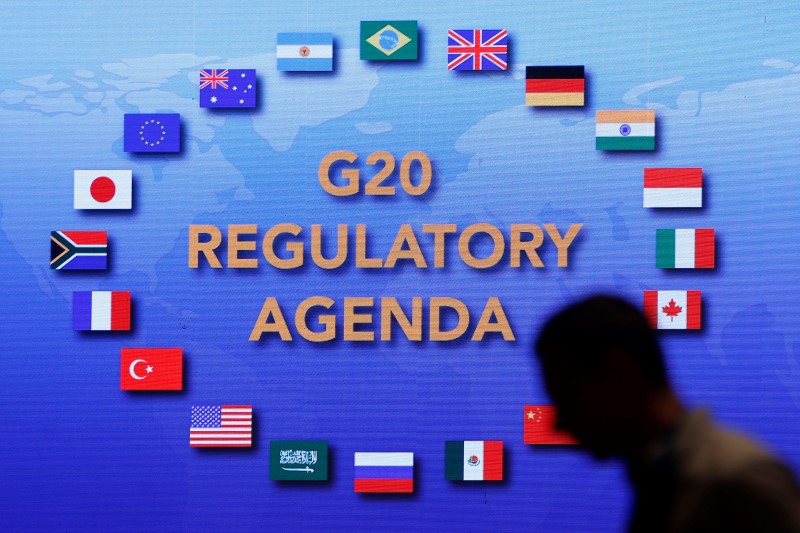By Matthew Green and Tom Arnold
LONDON (Reuters) - The Institute of International Finance (IIF), a trade association comprising the world's largest financial institutions, has outlined obstacles to the private sector joining a plan to ease the debt of the world's poorest nations.
The Group of 20 major economies announced on April 15 that they had agreed with the Paris Club group of major creditor nations to freeze debt payments for the 77 poorest countries from May 1 to the end of the year, as requested, to free up cash for the fight against the coronavirus pandemic.
But the IIF, which last month issued a rallying call to the private sector to join the initiative, has written to the heads of the International Monetary Fund (IMF), World Bank and Paris Club to raise the concerns of creditors about their involvement in such a move.
The letter from IIF head Timothy Adams was dated May 1 and said that its communications with more than 100 companies investing in or lending to countries within the initiative's scope showed there was "deep appreciation for the challenges facing these most vulnerable countries and strong interest in finding ways to support them and the proposed debt service suspension."
But it also said that private creditors highlighted challenges presented by the proposed suspension of debt payments.
The creditors pointed to concerns over finding agreement on the value of assets such as bonds, terms for private sector participation and whether the initiative will trigger a wave of sovereign debt downgrades and defaults, which could pose implications for benchmark indexes and capital flows.
MARKET ACCESS
"Creditors have highlighted significant concerns that the DSSI (Debt Service Suspension Initiative) could curtail international market access for countries that currently have it," Adams wrote in the letter seen by Reuters.
"It is imperative that borrowing countries be well-informed about the potential consequences for market access when requesting debt service suspension."
In normal market conditions, non-payment of debt obligations by a borrower would usually trigger a default, making it tricky for them to access the market again in a timely manner.
Another question surrounded the rules controlling new external financing sought by countries while using the initiative.
"Many (creditors) highlight the significant difference among in-scope countries and suggest an approach tailored to each specific country would be most appropriate," Adams wrote.
After a meeting last week, the Paris Club and the IIF, which groups more than 450 banks, hedge funds and other financial institutions, said they had agreed to collaborate on the initiative.
Some bondholders are exploring ways to develop new debt instruments backed by the World Bank or other lenders to enable emerging market governments to defer short-term repayments without triggering credit downgrades by ratings agencies.
Michael Hugman, a portfolio manager with asset manager NinetyOne, said that such instruments could be designed to channel long-term finance to support investments to meet goals on sustainable development or climate change.
"This crisis presents an opportunity to change the way bondholders lend money to emerging markets," said Hugman, who took part in discussions between the IIF and its members over the text of the letter.
"Innovation now could lead to much more sustainable economies over the long term."
